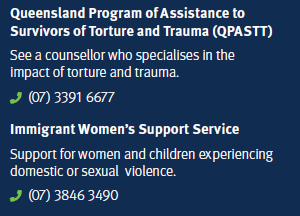Anyone can have struggles with their mental health
Sana’s story
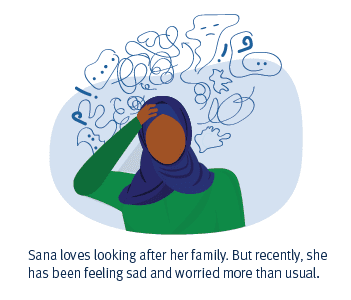
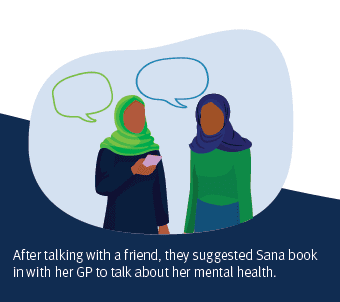
Tip: Your GP has different ways of helping you with your mental health. Read on to find out how they can help!
What your GP can do
At the appointment, the GP asked if Sana wanted a free interpreter. She said yes and they called the interpreter on the phone. Her conversation with the interpreter was confidential. This means they had to keep her information private.
Tip: You can ask for the same interpreter each time you visit the doctor, although it depends on availability of that interpreter.
With the help of the interpreter, Sana told the doctor why she had been feeling sad and worried. She is struggling to adjust to life in her new country while looking after her family.
The doctor spent some time to understand her feelings and she had to answer some questions. This helped to work out the best support for her.
Sana felt nervous to talk to her GP but they said that many people have these feelings and asking for help is the first step to getting help.
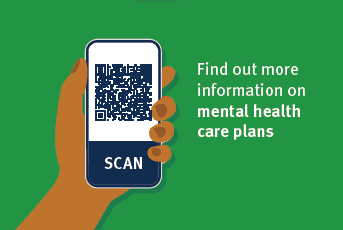
Mental health care plan
Sana’s doctor spoke to her about a mental health care plan.
Through the plan, she was able to get a referral to see a psychologist at a reduced cost. They are experts in mental health.
Now, she can start to get better which means her family will be better cared for.
A mental health care plan is for someone going through mental health issues.
It can help you feel better to support you and your family.
If you have this plan, Medicare will help pay for some of your sessions with a mental health expert.

Signs to look out for
We all struggle with our mental health sometimes. It’s okay to ask your General Practitioner (GP) for help.
Some common signs to look out for:
- Feeling sad or worried most of the time
- Getting easily confused and annoyed
- Not talking to family and friends
- Not enjoying things you used to do
- Changes in how you sleep
- Finding it hard to think clearly and concentrate
- Eating more or less than usual
- Wanting to cry all the time
- Thinking about hurting yourself or others.
In an emergency
If you or someone you know is in a life-threatening situation, call Triple Zero (000) or go to your local hospital emergency department.
Urgent support
If you feel unwell and want to speak to someone immediately for free:
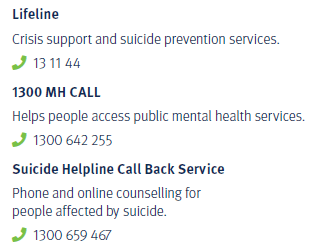
Free advice phone lines
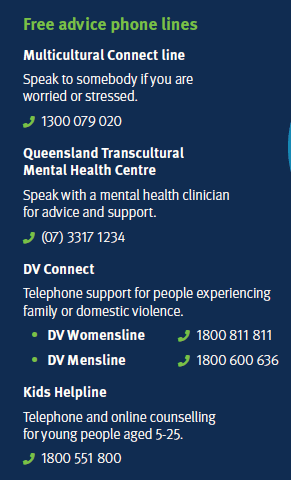
Specialist services
